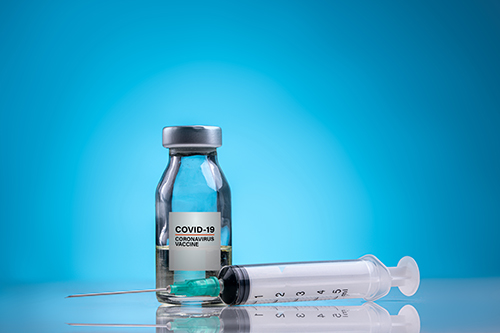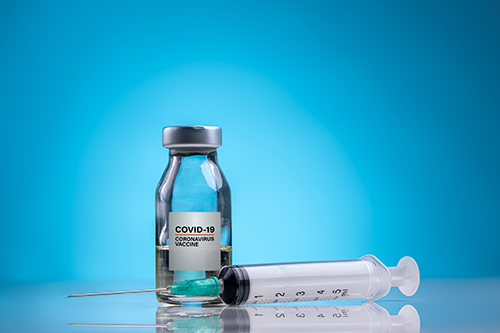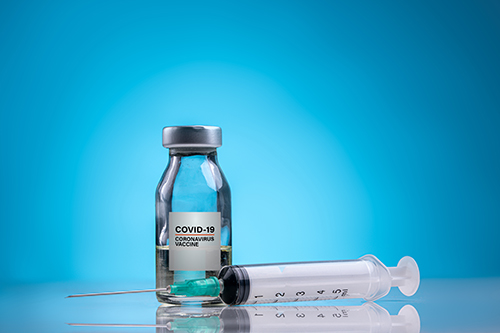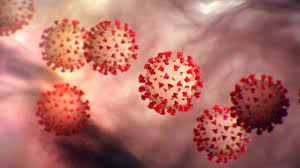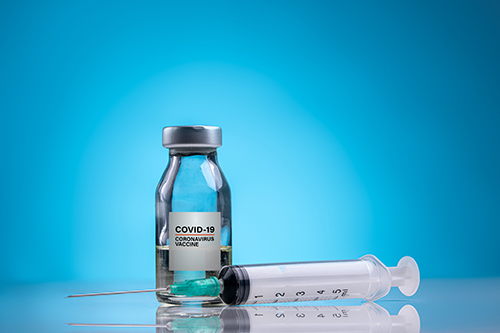Latest Coronavirus Updates
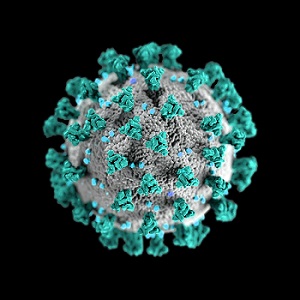 Texas families are facing difficult times in the wake of the Coronavirus (COVID-19) pandemic. This challenge represents an act of God that has affected almost every corner of our country and many sectors of our economy. Because this is an act of God, no one single effort will solve the challenges it brings. Our ability to win the ongoing war against COVID-19 will require all of us working together as individuals, families, healthcare providers, businesses, communities, local governments, state governments, and the federal government. There will always be finger-pointing during times like this, however, this distracts from our ability to work together to defeat the virus.
Texas families are facing difficult times in the wake of the Coronavirus (COVID-19) pandemic. This challenge represents an act of God that has affected almost every corner of our country and many sectors of our economy. Because this is an act of God, no one single effort will solve the challenges it brings. Our ability to win the ongoing war against COVID-19 will require all of us working together as individuals, families, healthcare providers, businesses, communities, local governments, state governments, and the federal government. There will always be finger-pointing during times like this, however, this distracts from our ability to work together to defeat the virus.
Each day, President Trump and the Coronavirus Task Force lay out a path ahead for our country to win this war. While this path is challenging, it does provide hope if we all do our part. Americans are compassionate, generous, and most importantly, determined. We will overcome this challenge as we have so many times before. Also, Congress and the Trump Administration are committed to working together to address the crisis.
In the paragraphs below, we have included the latest updates regarding the war on the SARS-COV-2 virus to fulfill our commitment to put your safety and economic security at the forefront of our daily efforts.
New News and Resources
Small Business Administration (SBA) Loans:
The Paycheck Protection Program created by Congress allows the Small Business Administration (SBA) to administer loans that are designed to provide a direct incentive for small businesses to keep their workers on the payroll. SBA will forgive loans if all employees are kept on the payroll for eight weeks and if the money is used for payroll, rent, mortgage interest, or utilities. The program is available through June 30, 2020. For more information, please click here, and to begin applying, please click the link here.
Rebate Checks:
Many constituents in my district have questions about how the recovery rebate checks for individuals and families will be distributed. If you have any questions, the Internal Revenue Service (IRS) has put together a useful website that answers most questions. The IRS has also recently announced that individuals who are on Social Security will not have to file a simple tax return. If you have any additional questions, please contact my office.
Unemployment Benefits:
Social distancing guidelines and state and local orders have affected millions of Texans. Congress has taken steps to help those who have been directly affected by these responses to deal with COVID-19 challenges. Congress extended unemployment benefits for four months to help those Texans who are out of work and need assistance paying bills. These benefits will be administered by the state of Texas. To apply for assistance, please click here.
My Congressional Office Resources:
Please visit my website for more information regarding SARS-COVID-2 and COVID19.
Three Legislative Steps by Congress
During March, Congress has passed three broad and encompassing pieces of legislation that help provide the resources, stability, and assurance that we need to persevere through this current challenge and to rebuild our economy.
Phase I:
On March 5, 2020, Congress passed H.R. 6074, the Coronavirus Preparedness and Response Supplemental Appropriations Act. The bill included $8 billion in funding to strengthen our nation's pandemic defenses. This bill included funding to make diagnostic tests more readily available, to protect Americans abroad, and to enhance state and local response efforts. Additionally, this bill provides $2.2 billion to the Centers for Disease Control and Prevention for continued research efforts. H.R. 6074 was signed into law by President Trump on March 6, 2020.
Phase II:
On March 18, 2020, Congress passed H.R. 6201, the Families First Coronavirus Response Act. This legislation provided economic relief to small businesses and workers, as well as additional measures to help state and local health agencies deal with the ongoing spread of the disease. Some of the provisions that will immediately help ease the economic and health aspects of this battle were additional virus testing resources, sick leave provisions, and family leave. H.R. 6201 was signed into law by President Trump that same day.
For more information on Phase I and II, click here.
Phase III:
Most recently, on March 27, 2020, the House passed, and President Trump signed into law, H.R. 748, the Coronavirus Aid, Relief, and Economic Security (CARES) Act. This bill was the third measure passed by Congress to address the public health and economic challenges in the wake of the COVID-19 pandemic. The CARES Act represents a strong commitment from the federal government to survive and to recover as quick as possible. Listed below are some highlights of the CARES Act. For a more detailed look at the bill click here.
- The CARES Act provides cash immediately to individuals and families. Individuals are eligible for checks up to $1,200 while married couples filing jointly are eligible for checks up to $2,400, with an additional $500 for each dependent child. Even Americans who have no income or those who only receive Social Security income are eligible. For information on the recovery rebate checks, click here.
- The CARES Act also provides substantial assistance to small businesses, including nearly $350 billion for a paycheck protection loan program to assist them in maintaining their payroll during this emergency. While small business can utilize the paycheck protection program to cover numerous business costs, if employers maintain their payroll, the loans can be forgiven. This will help workers retain employment help small businesses snap-back after the crisis. For information on the recovery rebate checks, click here.
- The CARES Act also provides $100 billion for hospitals and health care providers battling COVID-19 on the frontlines to ensure they receive the support they need. It also includes $16 billion to procure personal protective equipment, ventilators, and other medical supplies.
Agency and Trump Administration Actions
Federal Reserve:
As Congress and the Trump Administration work to help the American people, small businesses, and health care providers in the wake of the Coronavirus pandemic, the economic impacts continue to mount. Part of the process in providing our economy the assurances, backing, and liquidity it needs relies heavily on the Federal Reserve System, the central banking system of the United States of America.
The Federal Reserve is taking steps to keep the U.S. economy from suffering long-term damage. These steps began on March 3 when it has announced an emergency interest rate cut to zero. Additionally, the Federal Reserve has:
- Added cash to the market by purchasing government bonds and assets;
- Provided short-term loans to financial institutions;
- Temporarily relaxed lending requirements to encourage lending by banks;
- Improved global liquidity of the U.S. Dollar; and
- Established the Main Street Business Lending Program, in conjunction with the Small Business Administration, to support small and medium-sized businesses so they can access credit.
For more information on the Federal Reserve's COVID-19 response and information on statements, guidance, and rules to support financial institutions and the economy, please click here.
White House:
The White House has announced that more than 1.2 million individuals have been tested for the SARS-COV-2 virus, of which, approximately 216,000 persons have tested positive for the virus. The CDC has expanded SARS-COV-2 virus testing to all U.S. patients with an order from a doctor for testing. The FDA is expediting review for diagnostic tests, clearing the way for therapeutics, and engaging businesses to produce needed supplies like hand sanitizer, among other actions.
For SARS-COV-2 virus and COVID-19 illness resources, updates, and what you should know from the White House, please visit the CDC website at coronavirus.gov.
For detailed information at the state level, please visit the Texas Department of State Health Services, the Texas Division of Emergency Management, and Texas Health and Human Services.
Veterans
Veterans can keep up to date with the latest information from the Veterans Administration by visiting va.gov/coronavirus. Guidance from local VA medical facilities about their current operating status is available on each facility's website, which can be found through VA's facility locator tool.
If you believe that you have COVID-19, before visiting your local medical facility, community provider, urgent care center, or emergency department, I encourage you to call your local medical facility FIRST.
Small Business Owners
Small business owners are eligible to apply for low-interest loans to deal with the economic impact of SARS-COV-2. I would recommend that you begin working with your current bank as soon as possible to be ready to utilize these resources. To apply for one of these loans through the Small Business Administration, click here.
Other Information Resources
Those Traveling Abroad
Households
Pregnant Women and Children
People Who Are Sick
Schools
Local Businesses
Healthcare Professionals
In closing
Please know that Congress and the Administration, along with our state and local governments are coordinating to aggresively respond to the SARS-COV-2 virus and related COVID-19 illnesses. As your elected representative, I am taking every necessary step to ensure the safety of our nation against the continued spread of this virus. However, please remember one thing. While we need to be vigilant and practice good personal hygiene and protocols, know that together as individuals, families, healthcare providers, businesses, communities, and government, we will win the war against SARS-COV-2!
May God Bless your families and country during these difficult times.



